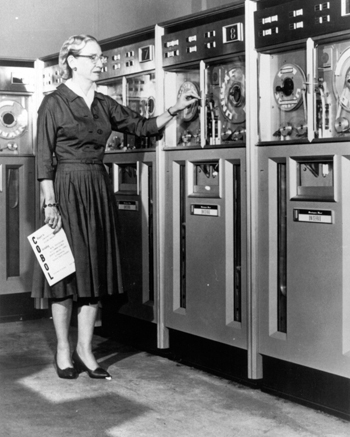 Dystopia vs Utopia?
Dystopia vs Utopia?
Dystopia. The word hisses off the tongue with sibilant ease, a slow slide into the dark cellar of the collective psyche. The black regimes of our fears, the fascism, the rage, the oppression which mirrors our inner shades, often realized in nightmarish reality.
Conversely, Utopia sounds so hopeful, so inclusive, like a suspended note of a celestial choir. A future where technology is used compassionately to further creative pursuits, knowledge and collective awareness.
What’s it going to be?
One of the great tasks of Science Fiction is to explore humanity in the context of earth shattering change. In the case of Ray Bradbury’s Farenheit 451 with its mechanical hound or George Orwell’s 1984, the startling portrait of the darker probabilities of the future, shaped the minds of a generation. The word “Big Brother” is now part of our lexicon of ideas.
On the Utopian side, Gene Roddenberry’s Star Trek inspired cell phones, interactive computers and has scientists noodling over the possibility of matter transfer and warp drive.
Because I’m writing a dystopian novel, I research gadgets and technological trends and lately I’ve been struck by the accelerated pace of technology. Our society is on the verge of a sea change. This has happened before, when planes and tanks and telephones were invented and changed how we communicated, fought wars, lived and died.
Again, we find ourselves living in times of massive technological upheaval. The changes are happening all around us, every second of every day. We’ve already experienced the powerful transformation of our lives due to the internet, but in labs around the world strange inventions are preparing to shift our collective experience of reality in dramatic ways.
Here in Los Angeles, the DMV is working out regulations for driverless cars. Amazon is considering drone delivery technology, so is UPS who already has 3D printers in some locations. Anyone who feels like scoffing at the reality of these ideas, let me draw your attention back to the first days of the Internet when people said it would never work.
The new military drones coming down the assembly line will make the old ones look primitive. They will reach speeds of 460 mph with vertical take off and landing capability. They will be armed with hellfire missiles.
 Drones: Big Brother is watching.
Drones: Big Brother is watching.
In labs around the world, scientists are making concepts once considered fringe science, into reality; mind reading machines, invisibility cloaks, laser weapons, microwave, acoustic and electromagnetic weapons, cloning extinct animals, crowd tasers, robots that can run you down or defuse bombs, insect droids, artificial DNA, artificial organisms built with a kill switch, 3D organ printers, anti-matter bombs, bio weapons and various ways to bio-enhance the human body including brain implants.
Our wired world has also introduced Orwellian levels of pure paranoia, since it is technically possible to spy on anyone or track them through their televisions, cellphones and computers.
From the Sci Fi writer’s point of view, the interesting part of the equation is always the human aspect. How will people react to technology? How will they enhance it or abuse it? Will they create dreams or nightmares?The United States Constitution did not predict the effect of phones, television, airplanes and atomic bombs, so a lot of that power over foreign affairs fell into the hands of one man, the president.
How will society react to mind reading and artificial organisms? Will we have a Star Trek style Utopia or a 1984 Dystopia? Sadly, the military industrial complex is pretty predicable. The amount of times my research has led me to a DARPA project is chilling. We also have the spooky revelations of Edward Snowden and Julian Assange as we watch the blow by blow information wars and disinformation campaigns play out.
After Jeff Bezos revealed his Amazon Air drone program on 60 minutes, UPS also admitted to having a drone program in the works. Within 24 hours a backlash of paranoid consumerism was unleashed. Naysayers waved regulation books and postulated the nefarious intentions of corporations, who now have the human right of free speech.
A paranoid reaction.
Which is good.
Because paranoia in this case is healthy. It’s the healthy side of fear. And probably the one thing that will save us. Because for every noble and beneficial act, there is a second possibility, that technology will serve the more hideous, destructive aspects of human nature.
As the ancient Greeks knew, Pandora can let every crazy ass demon out of that box, but inside there’s still hope. After all, the minute we had an internet, people used it to tell jokes and send stupid cat pictures.
Funny or Die’s take on the Amazon Drone issue:
Future Shock: Writing Sci Fi, Drones & Paranoia


